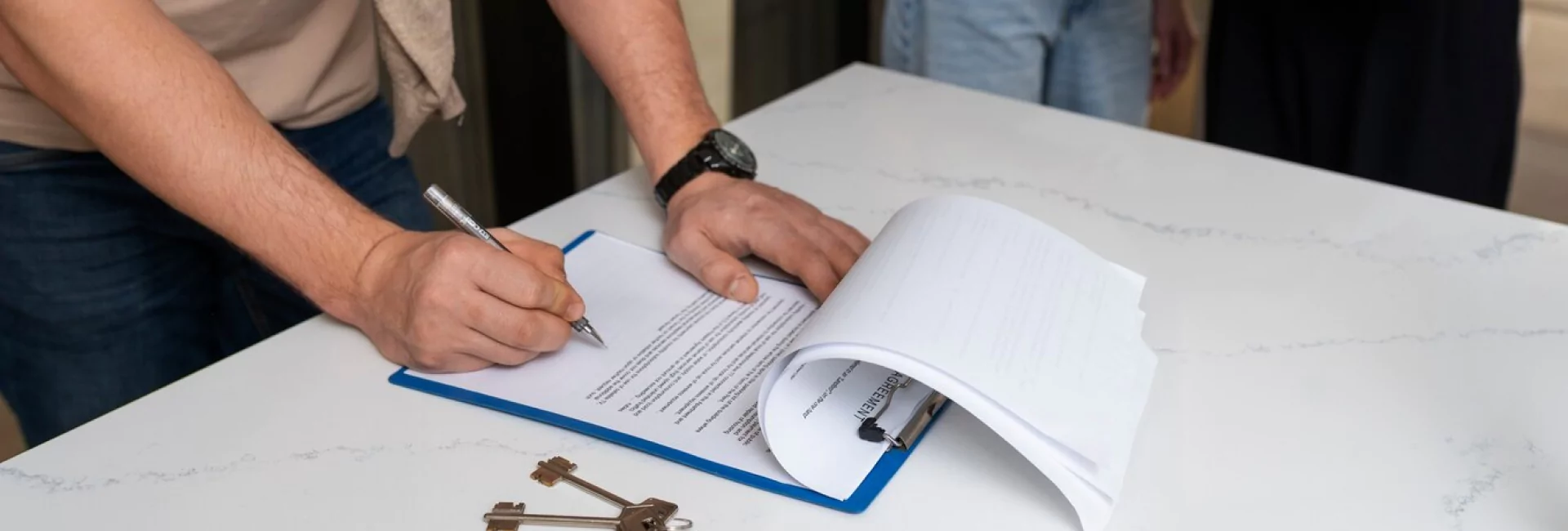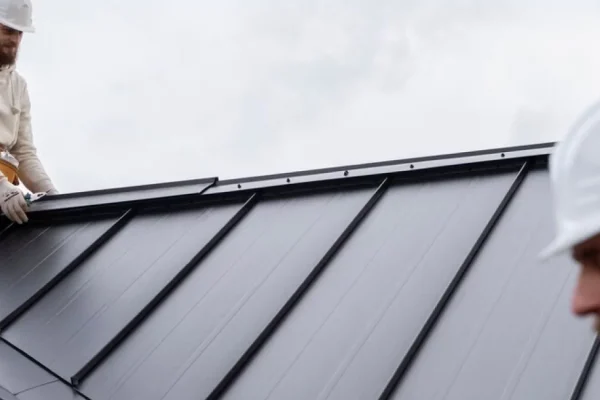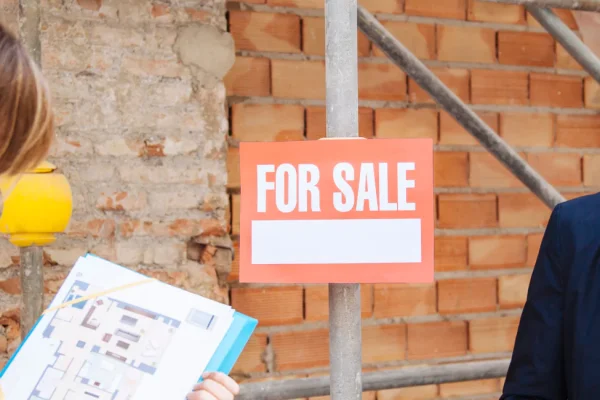What is Insurance Inspection?
Insurance audits are structured appraisals done by insurers to determine the status and dangers of a homeowner’s property. It is basically meant to find out if the house can be insured and to establish what its coverages and premiums should be. These inspections are aimed at identifying risks, assessing general building conditions as well as ensuring that such standards are adhered to for safety reasons.
Types of Inspections
Insurance inspections encompass various aspects of a property, including
Exterior Assessments:
Roof Condition:
The roof is inspected by inspectors so that they can evaluate its age, and condition and identify signs of damage if any. This includes an investigation into missing or damaged shingles in order to detect possible leakages as well as an overall assessment of the roof’s integrity. A well-maintained roof helps to shield a house from weather elements, averts water damage, and ensures long-term endurance.
Building Structure:
Assessing the general structure evaluates the integrity of walls, windows, doors, siding and foundations. Inspectors look for any indications of structural damage like cracks, shifts or weaknesses. Identifying vulnerabilities in time is a way to remedy potential problems early enough so that homeowners maintain stability and security across their property.
Landscaping and External Features:
Inspectors tend to investigate the surroundings, fences and other outside factors that could give rise to risks or liabilities. In addition, they inspect trees to confirm that they do not pose any danger to the property and also verify if fences and other structures are secure. This helps identify potential dangers in the external environment for the general safety of the property.
Interior Evaluations:
Electrical Systems:
An electrical system, involves a very detailed scrutiny of wires, circuit breakers, receptacles and other parts. These inspectors also make sure that standards of safety are met or any signs that there might be potential fire risks. Consequently, enhances identifying and rectifying issues within an electrical installation to ensure it is safe and dependable at home.
Plumbing:
Inspectors analyze the water plumbing system for leaks, water damage, and conformity to the building codes. This involves inspection of the pipes, faucets, drains and water heaters. When plumbing problems are detected and repaired in a timely way, they prevent water damage and maintain an effective running of all the plumbing systems.
HVAC Systems:
The evaluation of HVAC systems guarantees that they are functioning properly, with a comprehensive inspection of the furnace, air conditioning units, ductwork and ventilation system. An HVAC system that is well cared for not only adds to the comfort of a home but also increases energy efficiency and decreases the likelihood of breakdowns.
Risk Mitigation Strategies:
Security Measures:
Inspectors can enhance home security by suggesting the installation of burglar alarms, smoke detectors and fire extinguishers. By improving security measures, one can be sure that the house will be safe from any possible harm as a result of burglary and arson hence protecting the people living inside together with their properties.
Safety Upgrades:
Some ideas to counteract risks can be to strengthen buildings, modernize obsolete systems or put in place safety precautions. This helps the home ready for many situations such as natural disasters and accidents that may occur thereby promoting overall safety and resilience.
Insurance Inspection Checklist for Homeowners
Creating a comprehensive checklist helps homeowners systematically prepare for an insurance inspection. Key items to include:
Documentation:
- Get together important papers like insurance policies, maintenance logs, and receipts for any recent fixes or modernizations.
- Arrange property-related records properly for easy access.
Home Maintenance:
- Do regular maintenance activities such as repairing leaky taps, fixing minor damages and addressing other remaining problems.
- Inspect air filters for any replacement, examine the HVAC system and ensure that all systems are in good working condition.
Safety Measures:
- Validate whether fire extinguishers, smoke detectors and carbon monoxide detectors are functioning.
- Put valuable things that can be stolen or damaged and indispensable documents in a safe place.
- Make sure the house adheres to local building codes and safety requirements.
Exterior Preparations:
- Prune excessively grown foliage, more importantly near windows and doorways.
- Clear gutters and downspouts to avoid water harm.
- Fix all fences, gates or outdoor structures that are in poor condition.
- Fasten unsteady outdoor items which could be dangerous.
Interior Readiness:
- For a neat look, arrange and make the inside spaces uncluttered.
- Make sure there are no signs of water damage on walls, floors and ceilings.
- Ensure all equipment is effective.
Common Issues to Address
Insurance inspectors often focus on specific areas of concern. Address these common issues to ensure a smooth inspection process:
Roof Issues:
Make sure to repair any visible damage on the roof i.e. missing or broken shingles:
- Inspect the whole roof to check for worn-out parts, damages or missing shingles.
- Replace damaged shingles promptly to avoid water penetration into the building and structural causes of harm.
- It is worth thinking about getting an expert roofer to inspect your roof to assess its state.
Check for leaks and ensure proper ventilation in the attic:
- Inspect the attic for any symptoms of water stains, dampness or mold growth in there.
- See to it that repairs are done on any leaking areas immediately and make sure you fix chimneys’ or vents’ flashing properly.
- Make sure that there is enough ventilation in the attic to prevent moisture buildup which can cause decomposition or breeding of molds.
Plumbing Concerns:
Fix leaks or dripping faucets:
- Examine all water taps, including ones outside, to see if there is any leaking.
- Promptly replace washers that are old or take care of faucet connections.
- Make certain that the pressure of water remains steady and normal.
Insulate pipes to prevent freezing during colder months:
- Pipes that are exposed especially in spaces that lack heating like basements and crawl spaces should be identified.
- During the winter months, foam or other appropriate insulation materials should be used to prevent freezing of pipes.
- Seal off any holes or gaps through which pipes go through on floors or walls.
Ensure proper drainage to avoid water accumulation:
- To guarantee appropriate drainage, remove any garbage from gutters and downspouts.
- Look for signs of water gathering near the foundation after rain.
- Correct grading problems to divert water away from the foundation and prevent it from collecting at one point.
Electrical System Checks:
Replace faulty outlets or switches:
- Any outlets or any switches that show signs of being worn, damaged or broken should be identified.
- If required, update to modern outlets with integrated safety features.
- Make sure all wall outlets and switches are firmly fixed.
Address any exposed wiring or electrical hazards:
- disconnection.
- You should observe the condition of the wiring in open areas for breaks, gaping or external wear and tear
- Cover exposed wires immediately with conduits or secure them using electrical tapes.
Verify the functionality of GFCI outlets in bathrooms and kitchens:
- Test and reset Ground Fault Circuit Interrupter (GFCI) outlets to ensure they function properly.
- Put in GFCI outlets in places that get wet such as restrooms, kitchens and outside outlets.
- Examine the electrical outlets for any water damage or corrosion.
HVAC System Maintenance:
Schedule a professional HVAC inspection and service if necessary:
- Make sure you hire a certified HVAC expert to inspect and maintain the heating and cooling systems yearly.
- Make certain that the HVAC operates effectively and resolves any arising problems.
- Take note of when maintenance was done as well as any suggestions from the HVAC professional.
Clean or replace air filters:
- To maintain optimal performance of the HVAC, air filters must be cleaned or replaced as directed by the manufacturer.
- Dirty filters may hamper system efficiency and worsen air quality thereby posing potential problems.
- To achieve maximum efficiency of your HVAC system, regularly mark a schedule for routine filter maintenance.
Check for and address any unusual sounds or odors from the HVAC system:
- Take notice of any queer sounds or smells that may be emanating from the air conditioning system.
- Deal with odd sounds as soon as possible to prevent any likely destruction or any other causes of system breakdowns.
- Make sure you arrange for a service call if there are continuous malfunctions or strange behavior.
Navigating the Inspection Process
Scheduling and Coordination:
Contacting the Insurance Company:
- Call your insurance provider and set up an appointment for the inspection; this is a requirement in some cases when buying new policies or renewing old ones or if you are asked to by your insurer.
- You can also ask them what exactly they may require from you before doing it.
Flexible Timing:
- If you can, be adaptable with the program to suit your schedule and that of the inspector.
- In case possible, plan for the inspection during good weather days to ensure a complete check-up of the outside parts.
Preparation for the Day:
- It is important to make sure that the inspector can access vital areas within and outside the residence.
- Ensure that all utilities are in working order because electrical systems, plumbing, and HVAC may have to be tested by the inspector.
Key Areas Inspected:
Exterior Components:
- Roof: The roofing inspector examines the roof’s condition, how old it is and other potential issues like missing tiles or signs of injury.
- Foundation and Structure: Looking for cracks, settlement or any other concerns that might affect the overall structural integrity of the building during inspection.
- Exterior Walls and Siding: Examine the condition of walls, siding, and paint to detect any evidence of decay or damage.
Interior Components:
- Electrical Systems: This involves checking the wiring, power sockets, light regulators and circuit-breakers for safety and conformity to building codes.
- Plumbing Systems: These are tested for leaks, correct drainage and compliance with provisions of plumbing codes.
- HVAC Systems: HVAC systems are looked at in terms of their efficiency in heating, ventilation and air conditioning.
Safety Measures:
- Smoke Detectors and Alarms: Check to see if the house is equipped with smoke detectors and alarms and that they are functioning well.
- Fire Extinguishers: Verifying the presence of fire extinguishers, usually in the kitchen and utility areas.
- Security Features: Determining how effective security installations like locks, deadbolts and alarm systems have been.
Working with Inspectors:
Accompanying the Inspector:
- While, however, be present during the inspection to address any questions the inspector may have and you can gather insights into potential issues.
- Takedown, write out and ask for further explanation of every recommendation or concern by the inspector
Addressing Concerns Promptly:
- If there are any problems identified by the investigator, they should be resolved without delay before the insurance company gets hold of the report.
- Get bids from contractors for necessary repairs and keep track of what has been done.
Communication with Insurance Company:
- Throughout the whole process, make sure you keep in touch with your insurer.
- To fast-track the policy review, provide any documents or further information that may be asked of you.
Understanding Recommendations:
- The recommendations from the inspector should be taken in the sense that they are essential to safety and insurance coverage.
- You can sit down with your insurance agent and talk to the inspector about what needs to be done now.
Handling Inspection Findings
Reviewing the Inspection Report:
- Critically examine the report to understand the recommendations given and issues identified completely.
- Make recommendations on a priority basis depending on safety, insurability, and possible reductions in premiums.
Obtaining Quotes for Repairs:
- Contact competent contractors for quotes on the repairs that should be made.
- Make sure that the quotations are detailed to have a grasp of what is entailed in the job.
Timely Repairs and Documentation:
- To rectify any problems identified during the inspection, make sure to attend to the recommended repairs immediately.
- Keep a detailed record of the repairs done including receipts, invoices and before-and-after photos.
Communication with Insurance Company:
- Once the repairs are done, make sure to let your insurance company know.
- To show your dedication and commitment to safe and insurable property, please provide evidence of having had the repairs carried out.
Final Words
Navigating insurance inspections in Miami necessitates proactive preparation, effective communication, and diligent follow-up. Homeowners can ensure the adequacy of their property protection as well as compliance with the insurance requirements, by understanding the importance of these inspections and actively addressing any findings that may arise.
Insurance inspections are important to protect your most valuable assets. We understand this at Quality Property Inspector. As expert insurance inspectors in Miami, we offer comprehensive assessments and recommendations for making your property safer and more insurable.
Our team will walk you through every step of the inspection process; from scheduling to coordination, addressing recommendations, and negotiating premiums. In our services, we value transparency, professionalism and excellence striving to surpass your expectations and provide you peace of mind.
Whether you are preparing for a routine inspection or responding to any findings encountered during an inspection, you have a Quality Property Inspector here for assistance. Our aim is to help homeowners maneuver through the intricacies of insurance inspecting comfortably in confidently.
To safeguard your interests therefore trust us with your insurance inspection needs in Miami today. Contact us now so that we schedule your property inspection conveniently for both parties involved together.




